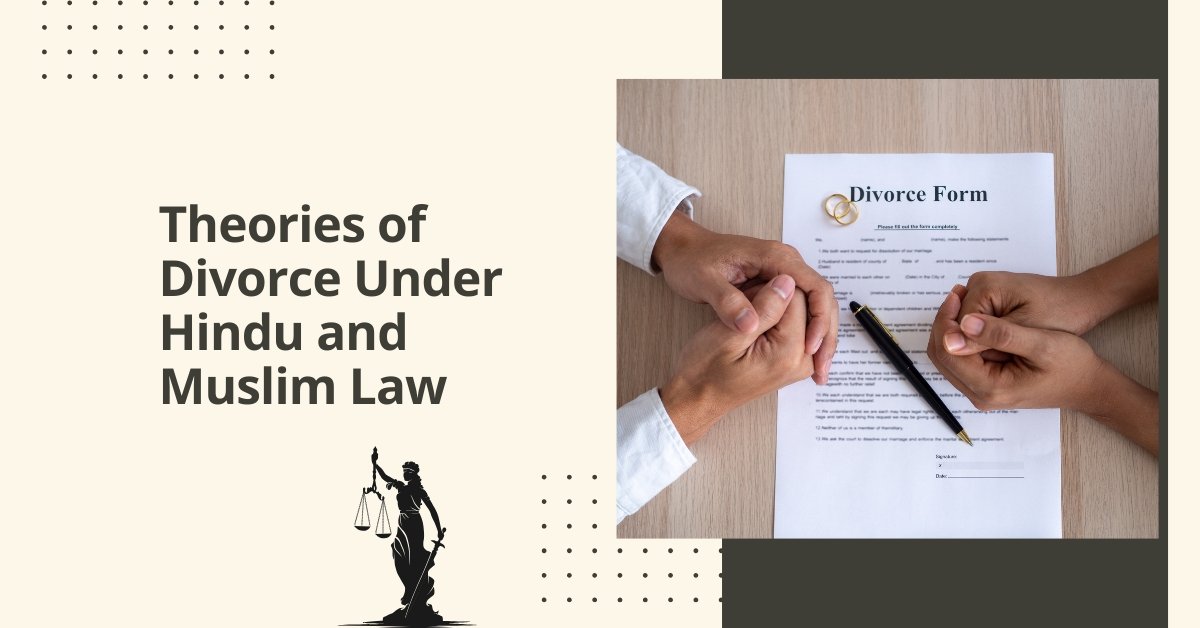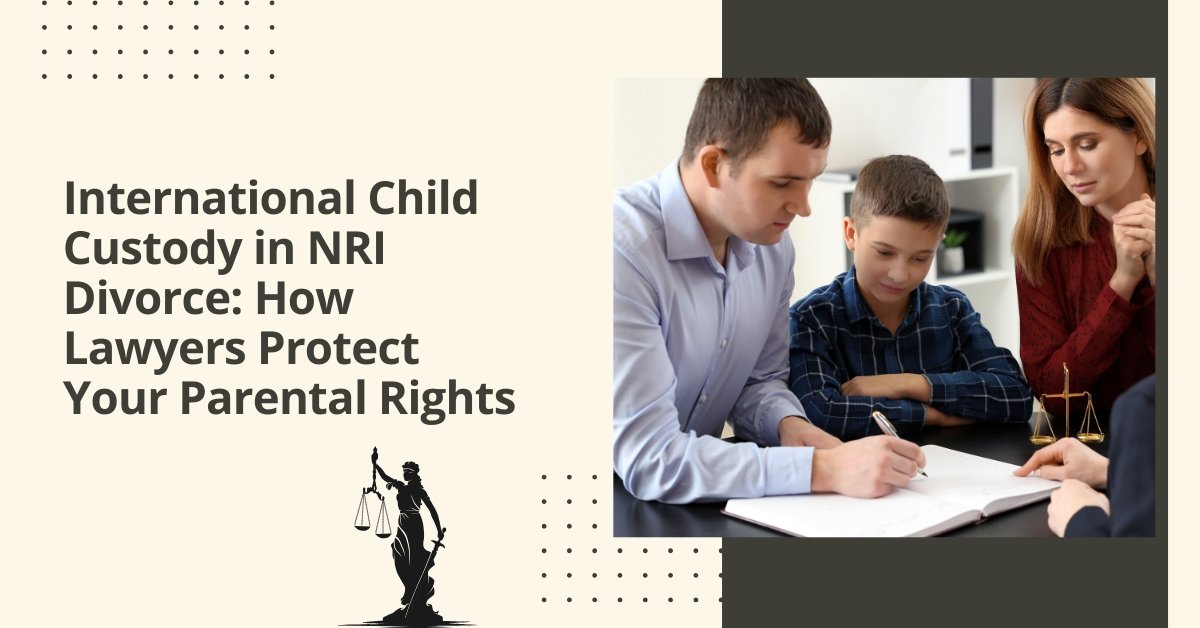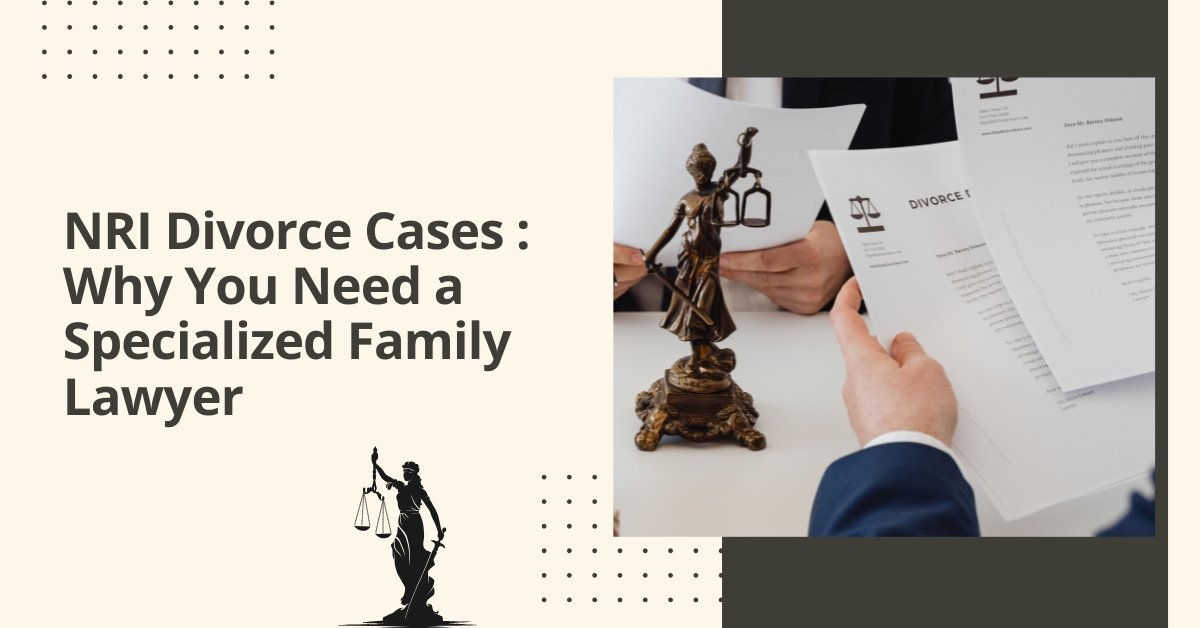Theories of Divorce Under Hindu and Muslim Law | Explained
Divorce is one of the most sensitive aspects of family law. It marks the legal dissolution of a marriage, ending the rights and obligations of the spouses toward each other. Every personal law system in India, including Hindu and Muslim law, has developed its own set of theories and grounds for divorce. Understanding these theories is crucial not only for law students but also for individuals navigating family disputes.
In this blog, we will explore the theories of divorce under Hindu law and Muslim law, their historical development, and their relevance in modern society.
Introduction to Theories of Divorce
Theories of divorce are essentially legal philosophies or principles that justify why and how a marriage can be dissolved. These theories form the basis of divorce laws in different religious and legal systems.
The three main theories of divorce are:
- Fault Theory (Guilt Theory)
- Mutual Consent Theory
- Irretrievable Breakdown of Marriage Theory
Each theory has been incorporated in some form into Hindu and Muslim law, though with variations.
Theories of Divorce Under Hindu Law
Hindu marriage was traditionally considered a sacrament (Sanskara)—a sacred and indissoluble union. Divorce was not recognized in ancient Hindu law. However, with the enactment of the Hindu Marriage Act, 1955, divorce became legally permissible, subject to certain conditions.
1. Fault Theory under Hindu Law
Under this theory, divorce is granted when one spouse is guilty of a matrimonial offense. The innocent spouse can seek divorce on the grounds of fault committed by the other.
Grounds include:
- Adultery
- Cruelty
- Desertion (for 2 years or more)
- Conversion to another religion
- Unsoundness of mind or mental disorder
- Venereal disease in communicable form
- Renunciation of the world (becoming a monk/ascetic)
- Presumption of death (spouse not heard of for 7 years)
Limitation: Divorce is not available if both spouses are at fault.
2. Mutual Consent Theory under Hindu Law
Introduced through Section 13-B of the Hindu Marriage Act, 1955, this provision allows both spouses to dissolve their marriage mutually.
Conditions:
- Both parties agree to divorce.
- They must have lived separately for at least one year.
- A joint petition is filed.
- After a cooling-off period of 6 months (waivable by court in certain cases), divorce may be granted.
This theory emphasizes the principle of individual choice and respects marital autonomy.
3. Irretrievable Breakdown of Marriage Theory
This theory is based on the idea that when a marriage has broken down beyond repair, keeping it alive serves no purpose.
Although not explicitly recognized under the Hindu Marriage Act, Indian courts (including the Supreme Court under Article 142) have granted divorce on this ground in exceptional cases.
Example: In Naveen Kohli v. Neelu Kohli (2006), the Supreme Court recommended the inclusion of irretrievable breakdown as a ground for divorce.
Theories of Divorce Under Muslim Law
Muslim law views marriage as a civil contract with rights and obligations. Unlike Hindu law, divorce was recognized from the beginning under Islamic jurisprudence. The husband generally has broader rights to divorce, but reforms and judicial interpretations have balanced these rights.
1. Fault Theory in Muslim Law
Similar to Hindu law, certain matrimonial faults allow a spouse to seek dissolution.
Grounds under the Dissolution of Muslim Marriages Act, 1939 (available to wives):
- Husband’s disappearance for 4 years.
- Failure to provide maintenance for 2 years.
- Husband’s imprisonment for 7 years or more.
- Husband’s failure to perform marital obligations.
- Impotence of husband.
- Husband’s insanity or venereal disease.
- Cruelty by husband.
Husbands, however, traditionally enjoy the unilateral right of Talaq (though recent judgments have curbed arbitrary practices like Triple Talaq).
2. Mutual Consent Theory in Muslim Law
Muslim law also recognizes forms of divorce based on mutual consent:
- Khula – divorce initiated by the wife, with the husband’s consent, usually involving the return of dower (mahr).
- Mubarat – divorce by mutual agreement where both spouses desire separation.
These forms align with modern principles of autonomy and equality.
3. Irretrievable Breakdown in Muslim Law
Though not formally codified, the principle of irretrievable breakdown operates in spirit. For instance, if spouses are unable to live together and reconciliation is impossible, divorce is often granted. Islamic jurisprudence emphasizes that marriage should not become a source of misery.
Comparative Analysis: Hindu Law vs. Muslim Law
Aspect | Hindu Law | Muslim Law |
Nature of Marriage | Sacrament (earlier), now contractual with religious aspects | Civil contract with spiritual significance |
Fault Theory | Recognized under Section 13 HMA | Recognized under Dissolution of Muslim Marriages Act, 1939 |
Mutual Consent | Section 13-B HMA | Khula & Mubarat |
Irretrievable Breakdown | Judicially recognized in rare cases | Implied in principles of Islamic law |
Initiation of Divorce | Either spouse | Traditionally husband, but wife has rights under law |
Sociological Perspective on Divorce Theories
From a sociological angle, divorce theories reflect changing social values:
- Fault theory aligns with traditional morality, punishing the guilty spouse.
- Mutual consent reflects individual autonomy and modern notions of equality.
- Irretrievable breakdown emphasizes practicality, focusing on whether the marriage can realistically continue.
As society evolves, the emphasis has shifted from fault-finding to respecting personal choice and well-being.
Seeking Legal Guidance for Divorce
Understanding the theories of divorce under Hindu and Muslim law is crucial for navigating family disputes effectively. Whether it is fault, mutual consent, or irretrievable breakdown, each theory has its place in ensuring that justice and fairness are upheld. If you are considering divorce and want expert guidance tailored to your situation, consulting the best divorce lawyer in Pune can help you make informed decisions, safeguard your rights, and ensure a smooth legal process.
Get AI Insights on Above Blog:
Most Recent Posts
Category
Explore Our Services
Empower Your Future with Expert Legal Guidance. Consult with Leading Divorce Lawyers at Adv.Mayur N. Gajbhiye for Professional, Compassionate Representation, Ensuring a Smooth and Informed Legal Journey.








